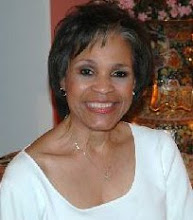
While being interviewed this week for Dana Roc’s “Inspiring People” column, she asked me, “One hundred years from now, what do you want to be remembered for?”
It reminded me of this scenario Stephen Covey painted years ago in his inspiring bestseller, The 7 Habits of Highly Effective People: You’re at the funeral of a loved one, approaching the casket. When you look inside, you come face to face with…yourself.
Stunned, you sit and wait for the services to begin, reading the program. There will be four speakers. One is a family member, another is a friend; the third is a business associate, and the fourth is someone with whom you’ve performed charitable or church work.
What will they say? The question is both provocative and eerie for me. First, it’s disconcerting to imagine myself at my own funeral, primarily because I’ve forbidden my family from hosting one of these gatherings on my behalf. If they feel compelled do something, absolutely no lifeless bodies are allowed on the premises. Jiminy Christmas! They’re such a downer.
Despite my aversion to these momentous events, I must admit that Covey’s illustrative example of highly effective people’s #2 habit, “beginning with the end in mind” made me think. I’d resolved that I’d play hooky from the whole affair, but I’d never thought about what would be said about me after I leave Pat’s body.
Think about it, Covey urged: “What would you like each of these speakers to say about you and your life? What kind of husband, wife, father or mother would you like their words to reflect? What kind of son or daughter or cousin? What kind of friend? What kind of working associate?
“What character would you like them to have seen in you? What contributions, what achievements would you want them to remember? Look carefully at the people around you. What difference would you have liked to have made in their lives?”
Pow! Even now, 15 years after I first read Covey’s words, they still pack a punch. I recall thinking back then what a terrific opportunity he'd given me: the chance to re-write my script, "with the end in mind." Sometimes, we get so caught up in our daily dramas that we lose sight of that unavoidable end, and we forfeit the opportunity to fine-tune the speeches the other actors will read in that final scene.
I find that it’s helpful to take inventory, periodically. Don't you?
When’s the last time you asked yourself, "How am I impacting others? What difference am I making? Are my family, friends and business associates observing that I’m growing in character, understanding, and compassion, or that I’m simply growing older?"
What will they say? What lines will you have written for them?
We’re all messengers. What message are we leaving for those who are close to us and those we encounter, even casually, enroute to our end?
We’re all here for a purpose. What’s yours? If you don’t know it, when do you plan to find out? Are you content to wander aimlessly in the desert until they shovel sand in your face, or will you leave a message that neither time nor windstorm can erase?
Who are you, really? Are you today the person you want to be? Do you know who you want to be?
What will they say when the curtain falls? What will be their indelible memories about you? How will you direct that final scene?
Time's almost up. The interview is drawing to a close. There’s just one more question:
“So Pat, 100 years from now, what do you want to be remembered for?” Dana asked earnestly.
I thought for a few seconds. Then I knew with certainty. “I want to be remembered for delivering Truth…joyfully.”
Surprised, she wondered, “Anything else?”
Now that she mentioned it, there was one more thing.
“Loving unconditionally.”
(To read the entire interview, click here.)

No comments:
Post a Comment